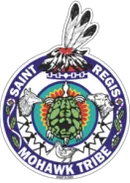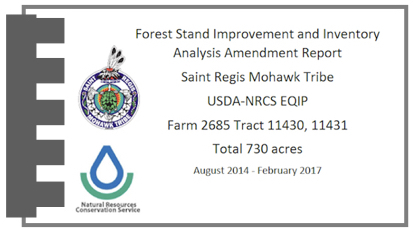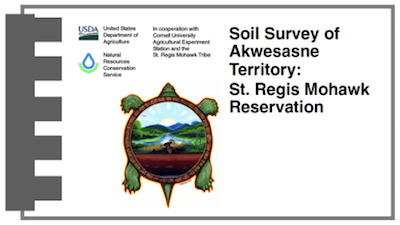-
Community & Family Services
- Care Management Program
- Child Support Enforcement Unit
- Family Support
- HCBS Waiver
- Home Improvement Supplement Program (HIP)
- Homeowner's Assistance Fund
- Individual Residential Alternatives (IRA)
- Individual Supports and Services (ISS) - Housing Subsidy Program
- Office of the Family Advocate
- Three Sisters Program
- Tribal Vocational Rehabilitation (TVR)
- Community Partnership Fund
- Economic Development
- Education
- Environment
- Executive Director's Office
- Finance
- Generations Park
- Grants & Contracts
-
Health Services
- A/CDP Outpatient
- A/CDP Prevention
- Partridge House (Inpatient)
- Ronthahiiohsthá:ke Clubhouse
- Business Office
- Centering Pregnancy
- Dental Clinic
- Health Promotion and Planning
- Laboratory
- Let's Get Healthy - Diabetes Center for Excellence
- Medical Clinic
- Mental Health - Kanikonri:ihne (Good Mind Counseling)
- Outreach Chronic Care Nursing
- Pharmacy
- School-Based Health Center
- Home Improvement Supplement Program (HIP)
- Human Resources
- Office for the Aging
- Office of Emergency Management and Safety
- Planning and Infrastructure
- Social Services Division
- Tribal Historic Preservation Office
- Tribal Police
Akwesasne Urban Forest Restoration and Watershed Protection

The USDA is an equal opportunity provider and employer. *
As part of a local storm water management strategy, the Saint Regis Mohawk Tribe, with help from the U.S. Forest Service Great Lakes Restoration Initiative (GLRI) will be planting 1,200 new trees to help improve green infrastructure in Akwesasne’s urban forest areas. These trees will help reduce storm water runoff, soil erosion, and sediment/nutrition loading in the rivers and streams in Akwesasne, near shore waters, and great lakes tributaries. Plantings will take place on public parks and private residences with a focus on replacing hazard trees that have been removed and Ash trees that will be lost due to the Emerald Ash Borer.
Down Woody Debris and Hazard Tree Assessment Program
Down Woody Debris Removal
The Saint Regis Mohawk Tribe, Environment Division, Forestry Resources Program is a seasonal program to assist the community with clean up of dead and downed trees, limbs and branches. The chipping project accepts sign-ups in April at their office located at 449 Frogtown Road, Akwesasne, NY 13655. Actual work will begin in late May or early June when weather and ground conditions permit.
Chipping eliminates the need to burn and provides a safe and convenient way to get yards in shape for the summer months. The elderly (ages 65 and older) and disabled (evidenced by state or provincial driver disability licensing, placard or plates) are prioritized and will be served first, although, anyone can sign up. The elderly and disabled who are unable to visit the environment office to sign up can be visited by calling the program with name, phone number and address to arrange a site visit.
Anyone participating in the program will be required to sign an access waiver before work is done on their property. If there is any question regarding land ownership the Tribe reserves the right to refuse services until the issues are cleared up.
Community members are encouraged take advantage of these services by getting in touch with the Forestry Program at (518)358-5937.
Hazard Tree Assessment Program
The hazard tree assessment program identifies trees that pose a danger to life and property and schedules them for possible removal, if necessary. Applications are received throughout the year but actual work and removals are performed during the months of June-November annually.
Hazard Tree services must be requested in person at the Environment Division office, 449 Frogtown Road, Akwesasne unless an elder’s circumstance prevents them from coming into the office or if a person is disabled and can't come to the office. In these case’s the Forestry Program will arrange a home visit. The community is reminded to never attempt tree removal on their own, especially if the tree is near power lines or buildings. If a contractor is called in they should ensure that they are qualified and insured and provide a written quote before proceeding.
Due to the large number of requests for the hazard tree assessments, we were not able to meet them all last year. There is now a waiting list. The list’s priority is based on the risk the tree poses for falling on people and property. Priority is then given to the elderly, retired and disabled members of the community. These additional criteria are used because these individuals are usually on fixed income and aren’t able to obtain resources for this type of work which can be quite expensive.
For additional information and to better understand the services provided see the following document (79 KB)
Hazard Tree Assessment and Removal - Understanding the services provided
Resources
Akwesasne Community Forest Management Plan
Key components of the plan:
- The current condition of the Urban and Community Forest
- Vision for the future and how that vision will be attained
- Goals, Objectives and Actions
- The community’s ideas, desires and values of the urban forest
- How to care for and maintain the existing urban forest
Akwesasne Mohawk Territory EAB Response Plan
Purpose of the plan:
- Provide the community of Akwesasne with a clear understanding of the risks and potential consequences associated with the Emerald Ash Borer
- Present the tools and strategies available to respond and adapt to the presence of EAB
- Goals and objectives for the continuation of traditional Mohawk Basketry
- Existing options for preserving black ash resources
Forest Stand Improvement and Inventory Analysis Amendment Report
Project objectives:
- Improve forest health to protect against future stress and invasive species, including emerald ash borer
- Reduce the density of ash and increase overall species diversity
- Initiate stand regeneration and restore native plant communities
- Improve forest resiliency to the effects of climate change
- Update forest inventory data
Additional information can be found at Saint Regis Mohawk Tribe: Forest Stand Improvements in Ash
Forest Inventory Analysis Report
Scope of report:
- Characterization of the forest in Akwesasne
- Results and inventory details of data collected
- Recommendations for future management options
- Timber values and volumes
- Utilization of forest resources
Custodial Forest Management Plan
Purpose of the plan:
- Provide information to ensure the long-term health and viability of the forest resources in Akwesasne
- Establish minimum management standards and guidelines
- Offer specific natural resource management information
- Prioritize potential and future forest management options
- To provide a list of management options designed to address the diverse interests and priorities of the individual landowners within Akwesasne
Soil Survey of Akwesasne Territory
Information provided from survey:
- details of soil properties that are used in making various land use or land treatment decisions
- predictions of soil behavior for selected land uses
- soil limitations, needed improvements, and impacts of selected land uses on the environment
- the location of each soil type on a detailed soil map
Additional Resources
EAB MANAGEMENT COST CALCULATOR
NATIONAL TREE BENEFIT CALCULATOR
TREE OWNER'S MANUAL-NATIONAL EDITION
* In accordance with Federal civil rights law and U.S. Department of Agriculture (USDA) civil rights regulations and policies, the USDA, its Agencies, offices, and employees, and institutions participating in or administering USDA programs are prohibited from discriminating based on race, color, national origin, religion, sex, gender identity (including gender expression), sexual orientation, disability, age, marital status, family/parental status, income derived from a public assistance program, political beliefs, or reprisal or retaliation for prior civil rights activity, in any program or activity conducted or funded by USDA (not all bases apply to all programs). Remedies and complaint filing deadlines vary by program or incident.
Persons with disabilities who require alternative means of communication for program information (e.g., Braille, large print, audiotape, American Sign Language, etc.) should contact the responsible Agency or USDA's TARGET Center at (202) 720-2600 (voice and TTY) or contact USDA through the Federal Relay Service at (800) 877-8339. Additionally, program information may be made available in languages other than English.
To file a program discrimination complaint, complete the USDA Program Discrimination Complaint Form, AD-3027, found online at How to File a Program Discrimination Complaint and at any USDA office or write a letter addressed to USDA and provide in the letter all of the information requested in the form. To request a copy of the complaint form, call (866) 632-9992. Submit your completed form or letter to USDA by: (1) mail: U.S. Department of Agriculture, Office of the Assistant Secretary for Civil Rights, 1400 Independence Avenue, SW, Washington, D.C. 20250-9410; (2) fax: (202) 690-7442; or (3) email: program.intake@usda.gov.







